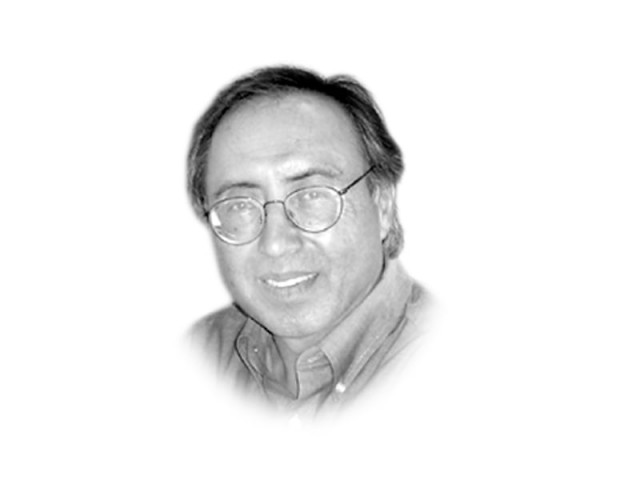Why Bhutto lives on
Bhutto lives on — a truly reflective slogan that the PPP has coined to the best political use at the grassroots level.

The writer is professor of political science at LUMS
To the anguish of Zia loyalists and supporters, Bhutto lives on — a truly reflective slogan that the PPP has coined to the best political use at the grassroots level. Anybody travelling in the interior of Sindh, southern Punjab and parts of other provinces would know without any ambiguity that Bhutto really lives on in the thoughts, prayers and memories of marginalised communities in these areas. In poor sections of society, Bhutto’s mass politics and mobilisation awakened them and gave the people some confidence and feeling of self-worth. The memory of this and the loyalties to Bhutto have been transferred to the younger generations of these sections. Why?
Any analyst who would like to apply an objective criterion of performance will find it confounding to learn that despite their dismal performance, the constituencies that have traditionally supported the PPP may support it again.
It is the social milieu of rural Pakistan and the popular culture of the PPP constituency where we can find the reason for this. Whether or not the PPP has support in its conventional geographical and social constituencies, I have no doubt about the party having retained its loyalty in constituencies among the poor. Even with a big shift away from the welfare politics of roti, kapra aur makan — the most simple and effective political slogan ever created — the party has retained the image of being a party of the poor. In politics, and more so in popular politics, perceptions matter more than facts.
One other reason why the public remains loyal to Bhutto requires us to understand the mass psychology of heroism. The Pakistani public, particularly in Sindh and Punjab, loves a hero. There is a wide range of heroes in regional folklores, from lovers who never had a union to those who fought against social injustice. They never ask questions about the means of how a man becomes a hero or whether those means are socially acceptable. What the folks admire is courage, commitment and ethos from a person rising from the general public — or a common man. Bhutto had all of the characteristics of folk heroes.
Another thing I would like to bring in here is the place of self-sacrifice and martyrdom in the popular imagination. The most popular leader in the history of post-independence Pakistan, Bhutto, going to the gallows on a controversial judgment was not an ordinary event, as those who wrote his murder thought. Whatever explanation the urban legal wizard may give to the tragedy of Bhutto, the mass verdict is that he was, is, and will remain a martyr. After Bhutto, three of his children — two young sons and one daughter, the latter was quite illustrious — followed him. This is an extraordinary legacy in the history of Sindh, its adjoining regions and, of course, all of Pakistan.
Finally, it is the culture of shrines and their centrality to social and cultural life of the villages. The political heirs of Bhutto understood the power of the shrine and they have built them bigger, taller and more conspicuous than any other. The shinning domes with a big compound for annual gatherings tell all: popular politics rests on popular culture.
Published in The Express Tribune, April 9th, 2013.















COMMENTS
Comments are moderated and generally will be posted if they are on-topic and not abusive.
For more information, please see our Comments FAQ